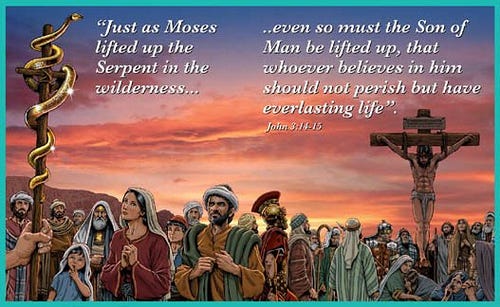We see a lot of double meanings in today’s readings. Contradictions? Paradoxes? Puns? Personally, I think it’s a way to pack a lot of information and teaching into fewer words.
Reading 1
Acts 4:32-37
The community of believers was of one heart and mind, and no one claimed that any of his possessions was his own, but they had everything in common. With great power the Apostles bore witness to the resurrection of the Lord Jesus, and great favor was accorded them all.
There was no needy person among them, for those who owned property or houses would sell them, bring the proceeds of the sale, and put them at the feet of the Apostles, and they were distributed to each according to need.
Thus Joseph, also named by the Apostles Barnabas (which is translated "son of encouragement"), a Levite, a Cypriot by birth, sold a piece of property that he owned, then brought the money and put it at the feet of the Apostles.
This is the second summary characterizing the Jerusalem community of Christians; we heard the first on Sunday.
It must’ve been nice to be of one heart and mind, because that’s the only way this “sell everything and distribute it according to need” thing would work. Nowadays, I see people getting mad on the internet about whether you should hold up your hands or not during the Our Father.
Responsorial Psalm
Ps 93:1ab, 1cd-2, 5
R. The Lord is king; he is robed in majesty.
The LORD is king, in splendor robed;
robed is the LORD and girt about with strength.
R. The Lord is king; he is robed in majesty.
And he has made the world firm,
not to be moved.
Your throne stands firm from of old;
from everlasting you are, O LORD.
R. The Lord is king; he is robed in majesty.
Your decrees are worthy of trust indeed:
holiness befits your house,
O LORD, for length of days.
R. The Lord is king; he is robed in majesty.
This Psalm along with 47, and 96 through 99, are called “Enthronement Psalms.” They can be interpreted in two ways: first, that God is the ruler of Earth; second, that everyone will obey God totally at the end of time.
Alleluia
Jn 3:14-15
R. Alleluia, alleluia.
The Son of Man must be lifted up,
so that everyone who believes in him
may have eternal life.
R. Alleluia, alleluia.
If this sounds familiar, it’s because we talked about it a few weeks ago, during Lent.
Gospel
Jn 3:7b-15
Jesus said to Nicodemus: "'You must be born from above.' The wind blows where it wills, and you can hear the sound it makes, but you do not know where it comes from or where it goes; so it is with everyone who is born of the Spirit."
Nicodemus answered and said to him, 'How can this happen?"
Jesus answered and said to him, "You are the teacher of Israel and you do not understand this Amen, amen, I say to you, we speak of what we know and we testify to what we have seen, but you people do not accept our testimony. If I tell you about earthly things and you do not believe, how will you believe if I tell you about heavenly things? No one has gone up to heaven except the one who has come down from heaven, the Son of Man. And just as Moses lifted up the serpent in the desert, so must the Son of Man be lifted up, so that everyone who believes in him may have eternal life."
The Greek word pneuma, as well as the Hebrew rûah, mean both “wind” and “spirit.” Just like yesterday, Jesus is making a pun.
The wind blows every which way. Who knows “where” it comes from; in fact, it can hardly be said to be “from” any place, other than directionally. We can’t see it, but we can feel it, we can see its effects.
Just like the Holy Spirit. As Fr. Mike pointed out in a recent Catechism in a Year episode, we don’t really have a solid image of what the Holy Spirit “looks” like. Jesus was a man and could definitely be seen; God the Father, we typically imagine as a father or father figure in our life. But the Holy Spirit is… a dove? Oil? Wind?
We can’t see the Holy Spirit, but we can feel it acting in our lives, if we pay close attention, if we open our hearts to Grace.





